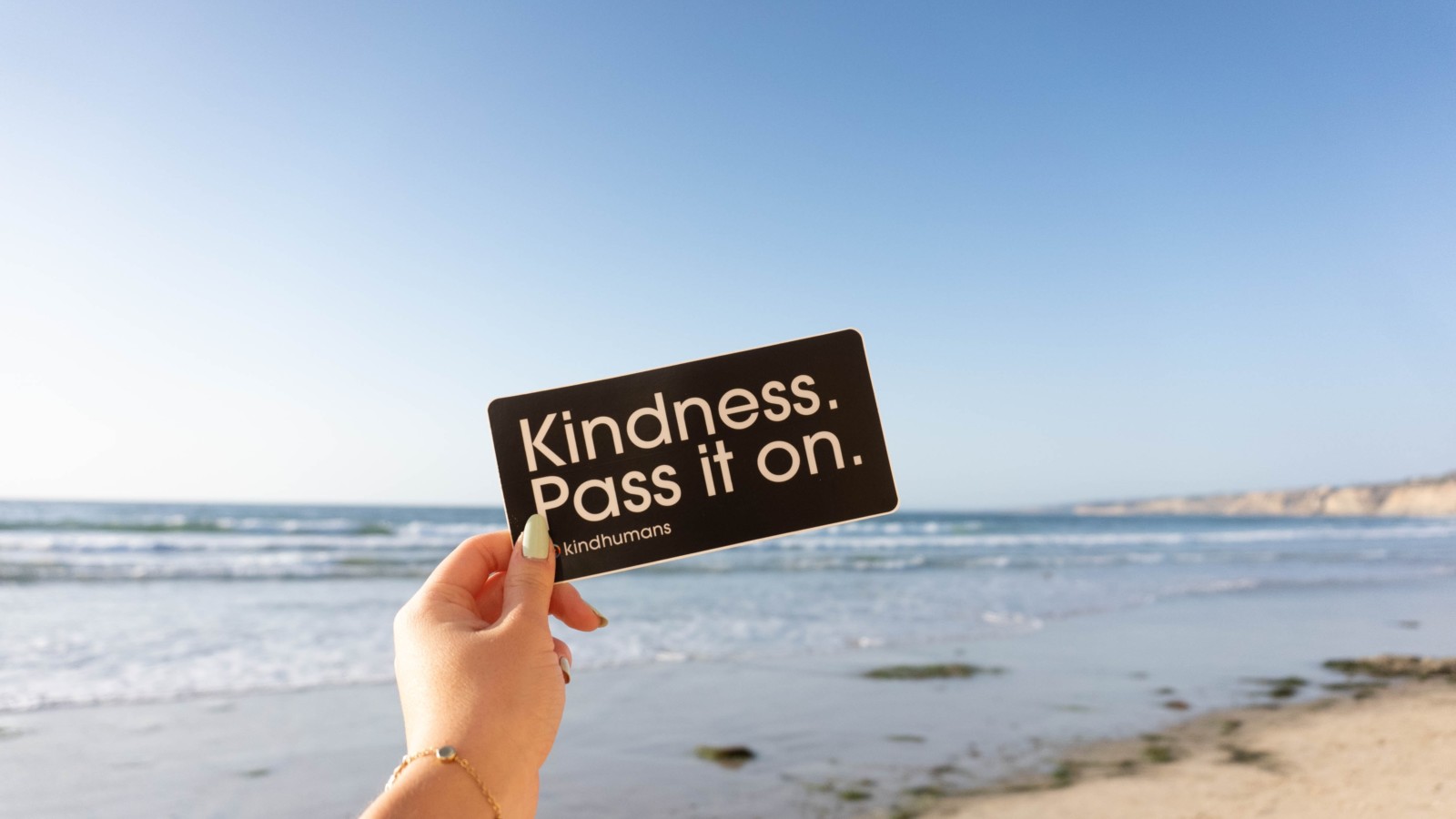You can rewire your brain to be more positive…
According to the Reslience Project having a consistent, daily gratitude practice can rewire your braing. In just 21 days you will start scanning the world for the positive, and in 42 days you –
- Are less likely to get sick
- Have higher energy
- Feel happier
- Are more enthusiastic
- Are more attentive
- Are more determined
- Are more optimistic
- Have a better quality of sleep
- Have lower levels of depression and anxiety
For me, kindness and gratitude go hand in hand. Both are contagious. When used regularly and together they also create a multiplier effect that not only rewires your brain, it helps you to feel happier and rubs off on everyone around you.
The power of gratitude
Two psychologists, Dr. Robert A. Emmons and Dr. Michael E. McCullough have done much of the research on gratitude. In one study, they asked all participants to write a few sentences each week, focusing on particular topics.
One group wrote about things they were grateful for that had occurred during the week. A second group wrote about daily irritations or things that had displeased them, and the third wrote about events that had affected them (with no emphasis on them being positive or negative). After 10 weeks, those who wrote about gratitude were more optimistic and felt better about their lives. Surprisingly, they also exercised more and had fewer visits to physicians than those who focused on sources of aggravation.
Another leading researcher and the founder of the field of Positive Psychology Dr. Martin E. P. Seligman tested the impact of various positive psychology interventions on 411 people, each compared with a control group. Participants were assigned different tasks each week including writing about early memories. One week their assignment was to write and personally deliver a letter of gratitude to someone who had never been properly thanked for their kindness. After this week, participants immediately exhibited a huge increase in happiness scores. This impact was greater than that from any other intervention, with benefits lasting for a month.
The kindness multiplier effect
The positive benefits of kindness and gratitude are magnified by the contagion effect observed in many research studies, including those referenced above.
There is no doubt that being kinder to your family and close connections, and expressing your gratitude more regularly, will improve these relationships. Life’s stresses and frustrations can make it feel like there is less kindness and gratitude available to share and express. And yet, it is when we are experiencing challenging times that we will benefit the most from positive close relationships.
Just like LOVE, there is no limit to the amount of kindness a person can exhibit and no limit to the amount of gratitude you can express. The more your kindness and gratitude you create, the more there will be!
Taking gratitude and kindess to work
It makes sense that we can apply all these learnings to achieve improvements in workplace culture. Imagine how it would feel to turn up to work every day knowing that it is a place of positivity and kindness, where people support each other and express gratitude. Where feedback is constructive, and learning is encouraged.
The concept of taking kindness to work is easy and consists of two parts –
- Being kinder to yourself by being removing the inner critic and replacing it with your inner coach, and
- Being kinder to work mates by supporting them to perform their best every day
The concept of taking gratitude to work is just as easy and also consists of two parts –
- Saying thank you and expressing your gratitude to work mates more regularly, and
- Reflecting on the things you are grateful for each day
How to be kinder at work
Here is a list of ways to be kinder at work –
- Smile and greet your colleagues in the morning
- Wish colleagues a nice evening or a good weekend
- Encourage team mates to take regular short breaks throughout the day
- Share knowledge and expertise in a constructure manner
- Replace negative emotional responses with more constructive responses
- Celebrate an achievement or milestone by having a team morning tea
- Bring some flowers into work for a colleague or for the team
- Pour glasses of water for everyone in a meeting
- Buy someone a coffee when you do to get yours
- Be curious – seek to understand someone else’s opinion when it is different to your own
- Give your team opportunities to come up with improvements in work practices
- Being a role model of positive behaviour
- Respect differences in opinions and beliefs
- Be inclusive of everyone
- Exchange personal stories with a colleague
- Organise a team get together to understand more about each other
If you’re stuck for ideas, the Random Acts of Kindness Foundation has developed a workplace kindness calendar that is free to download and can also be integrated into your Outlook, Google or iOS calendar for daily ideas and reminders about acts of kindness that you can do during the working week and on the weekends.
Showing gratitude at work
Showing gratitude at work is even easier, all it takes is a simple thank you to anyone who helps you or does something kind. For some people this can feel unnatural or forced at first and you don’t want to be excessive, or the positive impact can be reduced. With practice it will become an ingrained, automatic response and it will generate similar responses in others.
It doesn’t always require the words ‘thank you’. There are other ways to express gratitude, for example, you can complement a colleague on a job well done or acknowledge how someone has helped you to achieve work outcomes.


